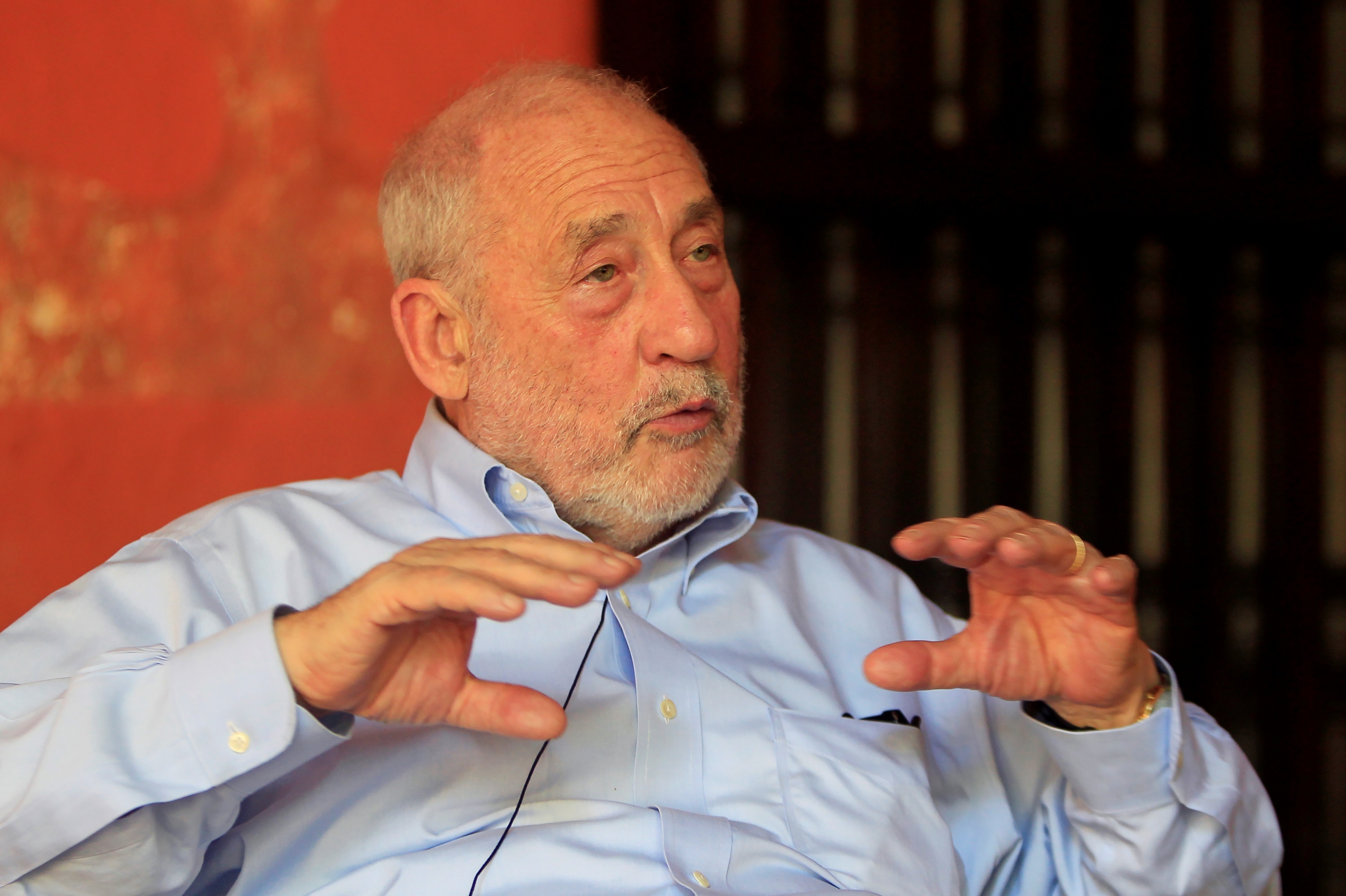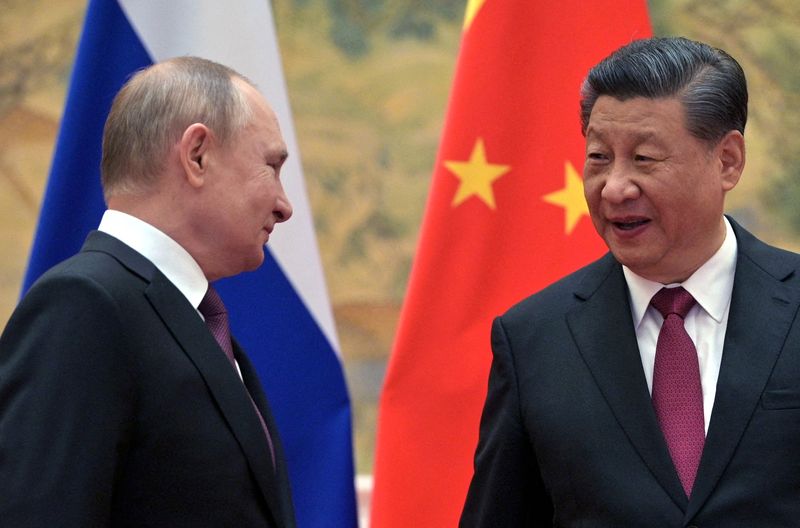
The speed and intensity of the economic and financial sanctions decided against Russia will make them effective, but Europe must stop buying Russian oil and gas, said Nobel Prize winner in economics Joseph Stiglitz.
“[Russia's] ability to wage war (...) will be altered” by the impact of sanctions on its economy, the economist said on the sidelines of a conference on the future of Europe, in an interview with AFP in Paris. “They lost significant amounts of military equipment (...) and they will have to replace it. But do they have the industrial and financial capacity? It's debatable.”
One of the main elements of the potential success of sanctions is “how quickly they were imposed”.
“If they are implemented gradually, [the Russians] can adapt,” says Stiglitz, who welcomes the speed with which Europeans acted since the invasion of Ukraine.
However, he considers it “difficult” to know whether the impact of sanctions on the Russian population and oligarchs could push Vladimir Putin to relax his position on Ukraine and the conflict he initiated. “There is so much propaganda of disinformation that Russian citizens accuse the West and not Putin” of the sanctions they suffer, such as restrictions on imports, the departure of some foreign companies or the devaluation of the ruble.
But he believes that Europeans “should stop buying Russian gas and oil”, which makes it easier for the regime to finance its war in Ukraine.
According to him, the impact “could be compensated by sharing the burden” between European states more or less dependent on Russian gas.

For now, the European Union rules out stopping buying Russian oil and gas, a measure already taken by the Biden administration in the United States. Some countries, such as Germany or the Baltic States, which import more than half of their gas from Russia, do not have a short-term alternative.
Europe and the United States could put “enormous pressure on Saudi Arabia, Abu Dhabi or the United Arab Emirates and ease sanctions against Iran and Venezuela for additional oil supplies,” says the economist.
He also considered that Europe and the United States should “do what they can to protect countries and individuals, who are most affected” by sanctions on their own territory.
“In some democracies, there are groups that suffer [from sanctions] and could demonstrate, as well as political parties that could take advantage” of those protests, he warns, calling for common action in budgets at the level of the European Union.
Former economic adviser to former US President Bill Clinton said earlier, at the conference, that China's position will also be crucial to ensuring the effectiveness of sanctions.
China's support for Russia worries the United States. The White House stated that it “made it clear to China that we will not be left doing nothing,” if a country provides assistance to Russia. For its part, China stated that it does not want to “be affected by sanctions”, which it “opposes”.

“Disproportionate” concern about inflation
In the context of sanctions and the acceleration of inflation, in particular energy and commodity prices, due to the war in Ukraine, the 2001 Nobel Prize in Economics considers the concern “disproportionate”, considering that this phenomenon of rising prices will be temporary.
“From a political point of view, it's a problem,” he said. But “there is no economic reason to worry about a level of inflation of 5 or 6%, or even 7 or 8%,” he says.
Stiglitz pointed out that the conditions are not in place for a vicious cycle of rising prices and wages, and that markets anticipate a decline in inflation in the medium term.
(With information from AFP/by Marie Heuclin)
KEEP READING:
Últimas Noticias
Debanhi Escobar: they secured the motel where she was found lifeless in a cistern
Members of the Specialized Prosecutor's Office in Nuevo León secured the Nueva Castilla Motel as part of the investigations into the case

The oldest person in the world died at the age of 119
Kane Tanaka lived in Japan. She was born six months earlier than George Orwell, the same year that the Wright brothers first flew, and Marie Curie became the first woman to win a Nobel Prize

Macabre find in CDMX: they left a body bagged and tied in a taxi
The body was left in the back seats of the car. It was covered with black bags and tied with industrial tape
The eagles of America will face Manchester City in a duel of legends. Here are the details
The top Mexican football champion will play a match with Pep Guardiola's squad in the Lone Star Cup

Why is it good to bring dogs out to know the world when they are puppies
A so-called protection against the spread of diseases threatens the integral development of dogs




